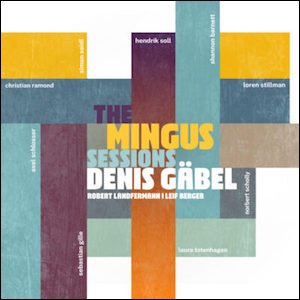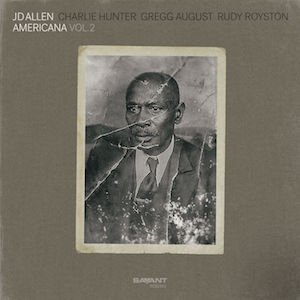Label: Arts Music, 2022
Personnel - Antonio Sanchez: drums, percussion, electric bass guitar, keyboards, mandolin, synthesizer, ukulele, vocals + Guests - Dave Matthews: vocals; Pat Metheny: guitar; Ana Tijoux: vocals; Becca Stevens: vocals, guitar; Trent Reznor: vocals; Atticus Ross: synth; MARO: vocals; Thana Alexa: vocals, beat box; Lila Downs: vocals; Meshell Ndegeocello: vocals, electric bass; Silvana Estrada: vocals; Kimbra: vocals, guitar; Rodrigo Y Gabriela; guitars; Ignacio López Tarso: featured artist.
Renowned Mexican-born drummer Antonio Sanchez is a prominent bandleader (Migration is probably his best project) and valuable sideman (Gary Burton, Pat Metheny) with an eclectic taste. His second insdtallment of Bad Hombre (the first was released in 2017 on CAM Records) comprises 16 tracks where he plays several instruments. 14 of those tracks feature guest artists and were recorded remotely in its vast majority, but the super-polished production winks to a more commercial audience.
The themes are sculpted with some rhythmic provocations, but as a whole, this work is less successful than what I was hoping for, struggling to maintain momentum. The mix of styles presented here is definitely not my thing, and while some collaborations gain an unschooled spark, others curb the impetus by adopting a fairly restrained temperament.
The album opens with the words of Sanchez’s grandfather, the 97-year-old Mexican actor Ignacio López Tarso, on top of a light and cool instrumentation. Yet, the standout tracks are: “Eh Hee 2.0”, a glamorous push into a sort of trad-rock arena featuring the American singer-songwriter Dave Matthews (who penned it) and the iconic crossover jazz guitarist Pat Metheny; “I Think We’re Past That Now”, a dark and muscular ebb and flow of industrial rock and electronic music with Nine Inch Nails’ members Trent Reznor and Atticus Ross on board; and “Alambari”, a dreamy sound cloud fronted by Portuguese singer Maro, which starting with odd-meter disposition, is ultimately rounded up to a symmetric cycle.
There’s also “The Bucket” (feat. Becca Stevens), which probes an alternative pop/rock style driven by shifting textures and peculiar beats; “Trapped (Red Room)”, whose mysterious and dark tones à-la NIN are embraced by Croatian American vocalist Thana Alexa; and the nu-soul incursions of “Waiting”, a solo effort, and “Comet Come to Me”, where Meshell Ndegeocello sings atop of a strong dub vibe and exotic rhythms.
Favorite Tracks:
02 - Eh Hee 2.0 ► 05 - I Think We’re Past That Now ► 06 - Alambari








































